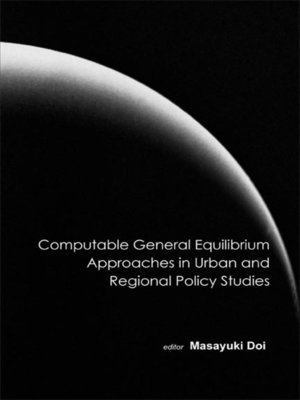Computable General Equilibrium Approaches In Urban and Regional Policy Studies
ebook
By Masayuki Doi

Sign up to save your library
With an OverDrive account, you can save your favorite libraries for at-a-glance information about availability. Find out more about OverDrive accounts.
Find this title in Libby, the library reading app by OverDrive.



Search for a digital library with this title
Title found at these libraries:
| Loading... |
Computable General Equilibrium (CGE) approaches have been used extensively over the past 25 years to analyze government and other policies for both developed and developing countries. Advances in methodology, computation techniques and data availability, including Social Accounting Matrix (SAM) data, have allowed researchers to use CGE models to study the potential policy impacts of tax, trade, environmental issues, etc. at the urban and regional levels as well as the macro level. What is common with these policy topics is that they cause structural, long-term impacts, including price changes and income growth, on various entities (households, enterprises, government and other regions/countries) and industrial sectors of economies. CGE modeling can compute a new equilibrium of each industry's market clearance upon the incorporation of such a policy shock, and evaluates the policy alternative as compared with the benchmark equilibrium in terms of industrial sector-wise and aggregated prices, outputs, GDP and many other indicators.






